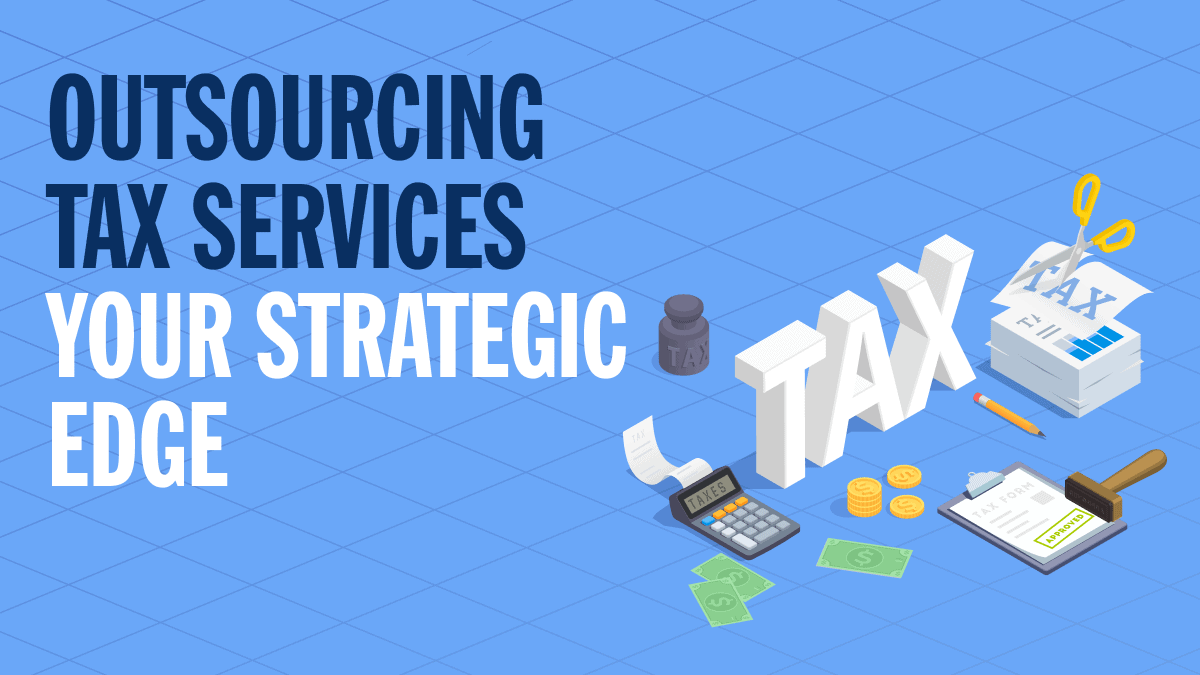Introduction to Outsourcing Tax Services
In an era where efficiency and expertise are paramount, businesses are increasingly turning to outsourced tax services as a strategic solution. This approach not only streamlines operations but also harnesses the prowess of tax professionals to navigate the intricate landscape of tax regulations.
The Strategic Advantages of Outsourcing Tax Services
Cost Efficiency: Reducing Operational Expenses
Outsourcing tax services transforms fixed costs into variable costs, offering businesses the flexibility to allocate resources more efficiently. This shift significantly reduces the financial burden of maintaining an in-house tax department, including salaries, training, and infrastructure expenses.
Expertise on Demand: Access to Specialized Knowledge
Tax laws are notoriously complex and constantly evolving. Access to specialized knowledge through outsourcing ensures that businesses stay abreast of the latest tax codes and regulations, minimizing errors and maximizing compliance.
Risk Management: Navigating Complex Tax Regulations
The stakes of misinterpreting tax laws are high, with potential penalties and legal repercussions. Outsourced tax professionals provide a safeguard against these risks, employing their expertise to ensure accuracy and compliance.
Deciding to Outsource Your Tax Services
Identifying Your Business’s Tax Service Needs
The decision to outsource begins with a thorough assessment of your business’s specific tax needs, including the complexity of your tax situation and the level of expertise required.
Evaluating In-House vs. Outsourced Tax Management
Weighing the pros and cons of in-house versus outsourced tax management involves considering factors such as cost, expertise, and risk. For many businesses, the benefits of outsourcing outweigh the convenience of an in-house team.
How to Choose the Right Tax Service Provider
Essential Qualities in a Tax Service Partner
The ideal tax service provider should exhibit qualities such as reliability, transparency, and a deep understanding of your industry’s specific tax challenges.
The Importance of Industry Experience and Reputation
A provider’s industry experience and reputation are critical indicators of their ability to meet your business’s unique needs. Look for providers with a proven track record of success in your sector.
Security Measures: Protecting Your Financial Data
In an age of digital threats, the security of your financial data is paramount. Ensure that your chosen provider employs robust security measures to protect sensitive information.
Overcoming Challenges in Outsourcing Tax Services
Addressing Common Concerns and Misconceptions
Common concerns about outsourcing, such as loss of control or communication barriers, can be mitigated through clear agreements, regular updates, and open lines of communication.
Ensuring Compliance and Confidentiality
Maintaining compliance and confidentiality is a joint effort between your business and the service provider. Establishing clear protocols and confidentiality agreements is essential.
Future Trends in Tax Outsourcing Services
Technological Innovations Shaping Tax Services
Technological advancements, such as cloud computing and blockchain, are revolutionizing the way tax services are delivered, enhancing efficiency and transparency.
The Growing Role of AI and Automation in Tax Management
AI and automation are playing an increasingly significant role in tax management, from predictive analytics to automated compliance checks, offering unprecedented accuracy and efficiency.
Embracing Outsourced Tax Services for Strategic Growth
Embracing outsourced tax services represents a strategic decision to leverage external expertise for operational efficiency, compliance, and risk management. As businesses navigate the complexities of the tax landscape, partnering with the right tax service provider becomes a pivotal step towards strategic growth and success.


